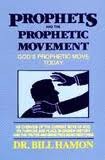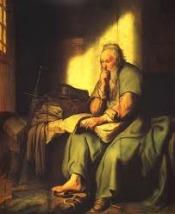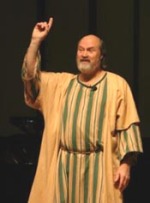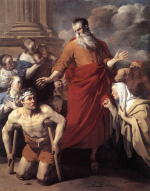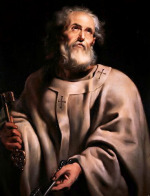Are You Tired Of Being Tossed To And Fro?
 Then we will no longer be infants, tossed back and forth by the waves, and blown here and there by every wind of teaching and by the cunning and craftiness of men in their deceitful scheming. Instead, speaking the truth in love, we will in all things grow up into him who is the Head, that is Christ. Eph. 4:14-15
Then we will no longer be infants, tossed back and forth by the waves, and blown here and there by every wind of teaching and by the cunning and craftiness of men in their deceitful scheming. Instead, speaking the truth in love, we will in all things grow up into him who is the Head, that is Christ. Eph. 4:14-15
 In my youth I remember listening to a local religious station that had 15 minute blocks of teachers, constantly all day: preach, preach, preach. Unless you were a Christian, I have no idea why you would listen to that station. Almost everyone of them gave the “salvation message” and a call for “financial support from listeners like you.” After several hours of various “salvation messages”, I remember Jimmy Swiggart’s program as something refreshing because it had to do with Christian growth and something different called the Baptism in the Holy Ghost with the evidence of speaking in tongues. Well not much teaching could be done in fifteen minutes when five minutes was introduction and another five pleading for financial support, so he had to speak in “series” that may last all month. As son as he was done, the next radio preacher to come on preached against the Baptism of the Holy Ghost, claiming the gifts died with the apostles, and Swiggart and others were examples of the “beloved” who were to be deceived in the end times as recorded somewhere in the book of Revelations. This was followed by a Bible Prophecy program teaching from the books of Daniel and Revelation claiming that Henry Kissinger was the anti-Christ because if you studied the numerical Jewish alphabet the numbers from the letters in his name added up to 666. What a fiasco! And this was Christian radio! This is what Christianity in America looked like?
In my youth I remember listening to a local religious station that had 15 minute blocks of teachers, constantly all day: preach, preach, preach. Unless you were a Christian, I have no idea why you would listen to that station. Almost everyone of them gave the “salvation message” and a call for “financial support from listeners like you.” After several hours of various “salvation messages”, I remember Jimmy Swiggart’s program as something refreshing because it had to do with Christian growth and something different called the Baptism in the Holy Ghost with the evidence of speaking in tongues. Well not much teaching could be done in fifteen minutes when five minutes was introduction and another five pleading for financial support, so he had to speak in “series” that may last all month. As son as he was done, the next radio preacher to come on preached against the Baptism of the Holy Ghost, claiming the gifts died with the apostles, and Swiggart and others were examples of the “beloved” who were to be deceived in the end times as recorded somewhere in the book of Revelations. This was followed by a Bible Prophecy program teaching from the books of Daniel and Revelation claiming that Henry Kissinger was the anti-Christ because if you studied the numerical Jewish alphabet the numbers from the letters in his name added up to 666. What a fiasco! And this was Christian radio! This is what Christianity in America looked like?
 Today, the internet has exposed Christianity as a hodge-podge of theology that divides and polarizes the body of Christ. I watched a YouTube video of an affluent pastor talking about the different streams of the emergent church movement, pointing out their fallacies. Although boasting to be more mainline historically, he refuted being a denomination or label, but actually a correct branch of the emergent movement. Are you confused? Of course his interpretation and his sect’s interpretation were the only “correct” interpretation.
Today, the internet has exposed Christianity as a hodge-podge of theology that divides and polarizes the body of Christ. I watched a YouTube video of an affluent pastor talking about the different streams of the emergent church movement, pointing out their fallacies. Although boasting to be more mainline historically, he refuted being a denomination or label, but actually a correct branch of the emergent movement. Are you confused? Of course his interpretation and his sect’s interpretation were the only “correct” interpretation.
Every branch of Christianity feels they have the “truth” and all of the millions of believers world wide who do not share their views on theology are down right wrong somehow! We even have Christian Talk hosts who love to pull witch-hunts on famous church leaders for the sake of so called truth by revealing heresies, false doctrine, and false teaching. There life has become a crusade fighting everyone and anyone in the Church who is not under their theological umbrella. Of course their views are never in error.
 Are you tired of being tossed around and blown here and there by all these so called bible teachers and self proclaimed prophets as defenders of truth? Whose right? Are any of them on base? What good is Christianity if there isn’t basic doctrine? Can’t we go back to the time the book of Acts was recording the “acts of the apostles” who had a simple message. There was simplicity to the Christian message. There was power in the Christian message. There was unity in the Christian message because of what was called “the apostles teaching”. The apostles taught the same message that Christ in the flesh had taught them and that the Holy Spirit taught them after Jesus’ ascension.
Are you tired of being tossed around and blown here and there by all these so called bible teachers and self proclaimed prophets as defenders of truth? Whose right? Are any of them on base? What good is Christianity if there isn’t basic doctrine? Can’t we go back to the time the book of Acts was recording the “acts of the apostles” who had a simple message. There was simplicity to the Christian message. There was power in the Christian message. There was unity in the Christian message because of what was called “the apostles teaching”. The apostles taught the same message that Christ in the flesh had taught them and that the Holy Spirit taught them after Jesus’ ascension.
I have come to realize that the salvation message is the same for those in a denomination church, or evangelical church, or denomination church, or emergent church, etc.: We are sinners in desperate need of a Savior, and Jesus is that Savior. It is that simple!





